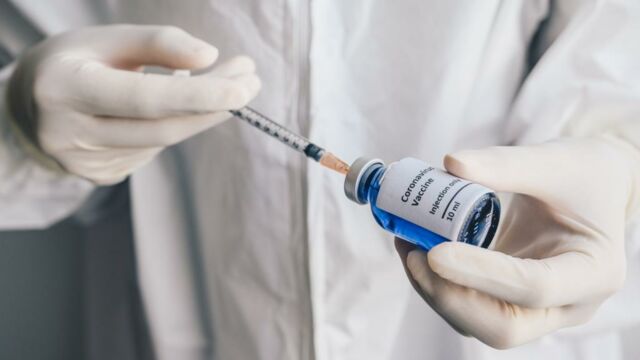Coronavirus vaccinescan help the body gain immunity to better fight off the virus in the future. But mRNA vaccines such as those by Pfizer and Moderna are new to most of us, generating a lot of curiosity on how they work or are different from regular vaccines.
Discover our latest podcast
What is an mRNA vaccine?
The main concept of any vaccine is to teach the immune system what a virus looks like, triggering it to memorise and attack it if the virus ever enters the body for real.
Viruses contain a core of DNA and RNA that is enclosed in a core of proteins. To create this protein coat, the DNA and RNA use mRNA or messenger RNA in order to produce the proteins necessary. Basically, one specific set of mRNA can manufacture a specific set of proteins.
So, while some vaccines use a weakened version of a virus to trigger an immune response, mRNA vaccines take a piece of this protein coat and replicate it inside the body. In the case of the coronavirus vaccines, the protein spike is the critical piece of the coat targeted. This is because the protein spike is what is responsible for targeting and attaching to cells on the body.
Labs then determine the genetic makeup of the mRNA needed and replicate it in large amounts. Once injected into someone’s arm, the mRNA then is destroyed by the bodies immune system which then recreates this protein spike. The immune system can then recognise that this protein does not belong in the body and builds T-lymphocytes and B-lymphocytes that can memorise and attack this spike in the future.
Again this type of vaccine has been in production for around 30 years and scientists did have to overcome a number of hurdles such as making sure this type of vaccine didn’t create an immune system overreaction. They also had to make sure that the immune system was encouraged to destroy the mRNA cells and reproduce the proteins. They also had to ensure that the mRNA cells were small enough that they wouldn’t get obliterated by other chemicals in the bloodstream.
However, it seems like all the work towards mRNA vaccines has paid off as it has been said to produce an even stronger immunity than regular vaccines. This is because mRNA vaccines prompt the body to generate both antibodies and immune system killer cells.
Can mutations make the mRNA vaccine ineffective?
When it comes to coronavirus, a number of mutation and variants have developed which has caused some changes to the protein spike. Initially, this made many people concerned that mRNA vaccines would not work against mutated variants of the virus. However, the mRNA vaccine actually targets multiple parts of the protein spike so that regardless of the mutation, the body should still be able to recognise the virus and fight it off. BioNTech CEO Ugur Sahin stated:
It is highly likely that the immune response by this vaccine also can deal with the new virus variants.
However, if there one day was a variant that saw significant changes in the makeup of COVID-19’s protein spike, a new vaccine could easily be made to target it. Sahin went on to confirm that it could take only six weeks to re-engineer the current vaccines to adapt to a new mutation:
In principle the beauty of the messenger technology is that we can directly start to engineer a vaccine which completely mimics this new mutation — we could be able to provide a new vaccine technically within six weeks.
Researchers involved in the Oxford vaccine are also in the process of testing just how much time it could take to make a new mRNA vaccine in case of emergency and are attempting to get the time down to just 48 hours. A spokesperson told The Telegraph:
The University of Oxford is carefully assessing the impact of new variants on vaccine immunity and evaluating the processes needed for rapid development of adjusted Covid-19 vaccines if these should be necessary.















